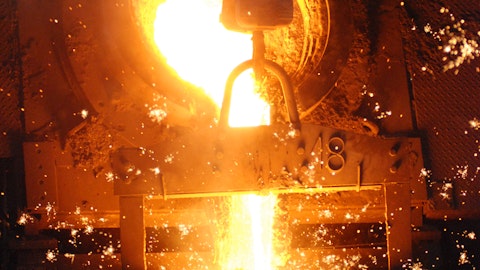Although I may not be knowledgeable enough in the area of insider trading, it seems quite clear to me that insider trading is impossible to police. The difference between legal and illegal insider trading is quite hard to grasp; although insiders are restricted from trading on material non-public information, they do have access to vast non-material information outsiders do not have access to (e.g. the success of an ongoing marketing campaign, bottlenecks in the supply chain, etc.).
I also believe that insider buying and selling should play an important role in keeping asset prices honest. In other words, corporate insiders can help keep prices from lying to the general public about corporate realities. This means that when insiders are trading on non-public information, they cause asset prices to reflect that information sooner and hence help other market participants to make better decisions. Corporate scandals would not occur so often if the government didn’t prohibit insider trading. Indeed, it would not be reasonable and fair to allow insiders to buy shares ahead of merger announcements or other information-heavy events, as the information advantage enjoyed by insiders could discourage other investors from investing in equity markets. Therefore, regulators and companies should be selective with regard to the types of information insiders may not trade on. Companies allowing trading on insider knowledge will eventually bear a lower risk than will companies that prevent such trading. Leaving this discussion aside, let’s have a look at a fresh set of noteworthy insider transactions reported with the SEC on Wednesday.
We follow over 700 hedge funds and other institutional investors and by analyzing their quarterly 13F filings, we identify stocks that they are collectively bullish on and develop investment strategies based on this data. One strategy that outperformed the market over the last year involves selecting the 100 best-performing funds and identifying the 30 mid-cap stocks that they are collectively the most bullish on. Over the past year, this strategy generated returns of 18%, topping the 8% gain registered by S&P 500 ETFs.

Copyright: rawpixel / 123RF Stock Photo
CEO of Battered of Home Furnishings Retailer Buys 200k Shares
To begin with, the man at the helm of Tuesday Morning Corporation (NASDAQ:TUES) bought a large amount of shares at the beginning of the week. Chief Executive Officer Steven Robert Becker snapped up 200,000 shares on Monday at $3.66 apiece, boosting his direct ownership stake to 248,402 shares. Mr. Becker also owns an indirect ownership stake of 1.24 million shares.
President and Chief Operating Officer Melissa Philips recently announced her resignation from the home furnishings retailer almost two years after being promoted to help turn around the company. Mr. Becker is assuming the responsibilities of President, while the COO position has been eliminated. At the end of the previous week, Tuesday Morning Corporation (NASDAQ:TUES) said comparable store sales increased 3.8% year-on-year in the quarter that ended December despite facing significant supply chain challenges, while net sales increased by $8.2 million year-over-year to $328.1 million despite operating 24 fewer stores. The shares of the off-price retailer specializing in selling deeply-discounted, upscale home accessories, housewares, seasonal goods and famous-maker gifts have dropped 32% in the past 12 months. Adage Capital Management, founded by Phill Gross and Robert Atchinson, owned 2.19 million shares of Tuesday Morning Corporation (NASDAQ:TUES) at the end of September.
Follow Tuesday Morning Corp (NASDAQ:TUEM)
Follow Tuesday Morning Corp (NASDAQ:TUEM)
Receive real-time insider trading and news alerts
Let’s head to the next page of this article, where we discuss fresh insider buying at two other companies.





